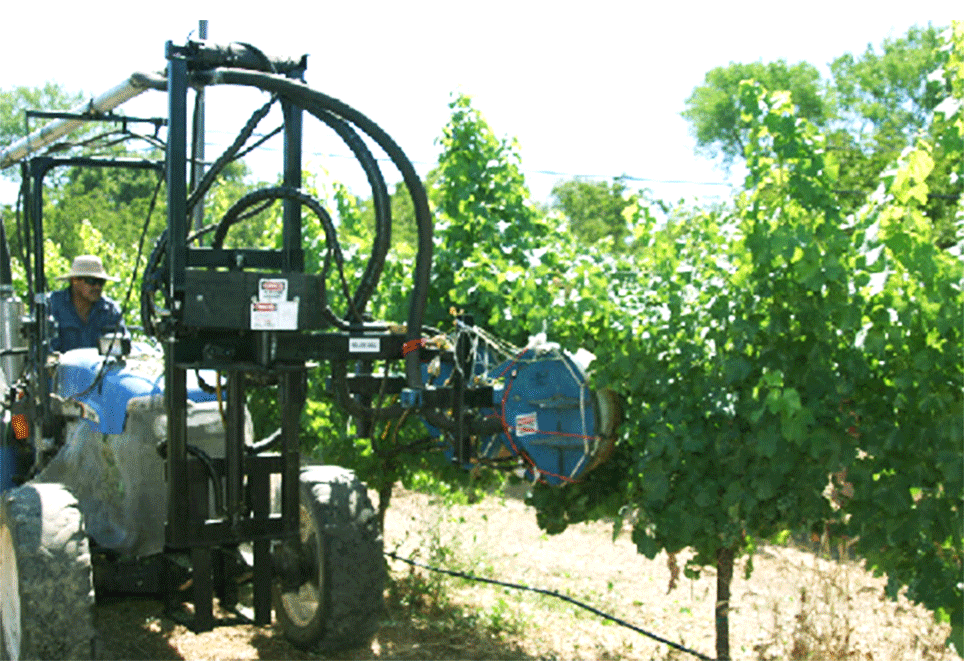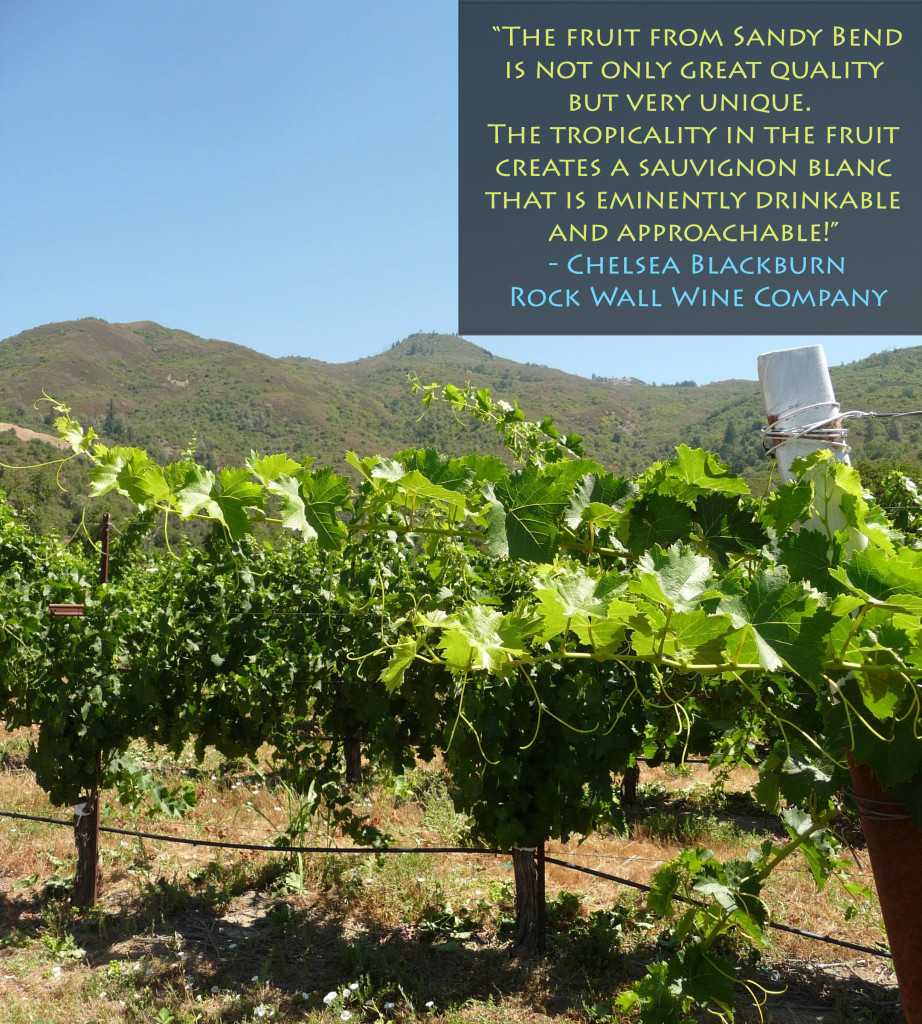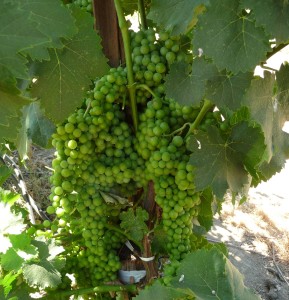
We strive to cultivate the vineyard responsibly and constantly seek to be a “good neighbor” in Lake County. Our focus is to develop flavors contributing to very agreeable wines using sustainable practices, including smart canopy management and the minimization of material applications. We always pursue strategies, approaches and activities that lead to making a good quality product at a minimal cost. This allows us to offer superior winegrapes at a very competitive price. Our good cultural practices have evolved for years and this continues with our certification since 2013 as a California Certified Sustainable Winegrowing operation. We are proud of this seal of good practice and embrace the message it sends and the ongoing responsibility it carries.
Our vineyard has the good fortune of being situated apart from other vineyards. It is the furthest north in the Upper Lake area. It is surrounded by hay fields, walnut orchards, pear orchards and native riparian habitat. The prevailing wind is from the northwest and the next-closest vineyards are to our south, so pest pressure from other vineyard cultivation is minimal. Lake County’s cool winters and late springs deter insects and mites from over-wintering or multiplying exponentially early in the season. Dry summer heat keeps down the risk of fungal invasion.
Exposing the fruit to sunlight during the first half of the day is critical to flavor  development and the corresponding open canopy provides natural aeration, controlling humidity and further minimizing the need for antifungal agents. We achieve these benefits with two critical practices: targeted leaf-thinning, largely on the eastern side of the vine row, which opens the fruit zone to morning sun, and regular vine-pruning, which tamps down the vigorous growth that our rich soils sometimes foster.
development and the corresponding open canopy provides natural aeration, controlling humidity and further minimizing the need for antifungal agents. We achieve these benefits with two critical practices: targeted leaf-thinning, largely on the eastern side of the vine row, which opens the fruit zone to morning sun, and regular vine-pruning, which tamps down the vigorous growth that our rich soils sometimes foster.
Our philosophy is to work with nature, not against it, and use a minimum of materials that are in any way toxic to the environment or which would dramatically impact and increase our farming costs. This creates a dual benefit at Sandy Bend Vineyard. For composting, seasonal grasses and vine cuttings are diced into the soil between the vine rows. Fertilization supplements are used in very limited amounts each season. The high fertility of our soils along with our sustainable practices lowers the need for significant additives. Vine development and nutrient transport requires good phosphate availability. We also provide potassium and an incidental amount of nitrogen when the drippers are acid-washed. Little herbicide is used, as it is rarely, if ever, needed.
 The vineyard also requires minimal irrigation. Between winter rains and applications of water during frost season, the soil profile is well hydrated as the warm season progresses. Our drip irrigation system and the sandy element of our sandy loam soil permit the water to reach the root zone quickly when we determine that additional hydration is required. The loam element in our soil contributes to good water retention.
The vineyard also requires minimal irrigation. Between winter rains and applications of water during frost season, the soil profile is well hydrated as the warm season progresses. Our drip irrigation system and the sandy element of our sandy loam soil permit the water to reach the root zone quickly when we determine that additional hydration is required. The loam element in our soil contributes to good water retention.
Our vineyard process is centered on production of quality fruit at a modest cost, not necessarily a showpiece of neatly pruned rows and pristinely kept spaces. We do what works, what is practical, what is cost-effective, and what is responsible. This allows us to deliver fruit to our customers at a fair and extremely competitive price point. Most importantly, we are committed to delivering fruit that will produce a great and highly enjoyable wine!
Since the property’s acquisition a few years ago, Sandy Bend Vineyard has moved forward in various ways and made significant strides. A key factor has been progressing towards sustainable winegrowing practices. In 2013, SBV was designated as a California Certified Sustainable Winegrowing (CCSW) vineyard by the California Sustainable Winegrowing Alliance (CSWA). This certification and approach was particularly appealing as it involves a Continuing Improvement Process (CIP) where striving towards greater levels of sustainability, productivity and quality are a constant. Sandy Bend Vineyard is committed fully to this process.
Learn more about SBV and our special terroir at the Our Vineyard page.
sandy bend vineyard ♦ upper lake ♦ lake county, ca
